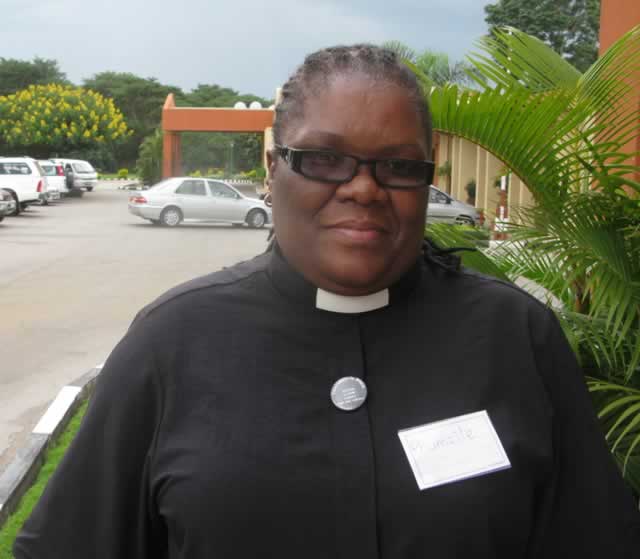‘When care is missing, it’s suicidal’
Tariro is (or was) happily married and was been faithful to her husband. “I have been married for 35 years and have been faithful to my husband. So there was little possibility that I would be be carrying the virus,” she said.
Tariro narrated how she got to be tested
“We were coming from church and saw this mobile testing unit at the shopping centre. We were thrilled and saw no harm in knowing our status. We lined up, were counselled and got tested using the rapid result test kits,” she said.
“I regret that day, my friends could have noticed the sudden change in my temperament. I feigned illness and said that I had got a terrible headache since I am ‘allergic’ to needles. I told them that the prick had triggered my migraine and that’s how my depression came about,” she added.
Tariro said she did not get any support from her husband after she phoned him. “I told him that there was something very important and that he should come straight home after work. He pestered me what it was but I could not say it on the phone, I was pained,” she said.
When the husband came home Tariro was shocked with her husband’s response when she disclosed that she had tested HIV positive.
Her husband accused her of being “too forward” and “promiscuous”.
“He told me in my face that I was to blame for the infection, citing H-Metro stories that claimed some church women were indulging in extra-marital affairs under the guise of attending church meetings. I could not believe that a man I had loved for over three decades, been faithful to, had infected me and yet turned around to blame me. I wept,” she said.
To make matters worse, her husband has vehemently refused to get tested.
“I am a full-time housewife. I have enjoyed doing that all my life. My husband is the breadwinner and has always provided for the family. However, we have never been on medical aid since his employers do run such a scheme. So when I asked for some money to see a private doctor he flatly refused and told me in no uncertain terms that to go to the same public place I had been tested to get assistance,” she said.
From that point, Tariro sunk further into depression and decided to go to her local clinic where she was further counselled. She was told to go to the main referral hospital in her area where further tests were done.
“I was referred to Harare Hospital and there I was warmly received. I was shocked to see so many people in situations similar to mine. I thought HIV was for those who were of loose morals so I was surprised to see even mothers from my church union,” she said.
After the mandatory liver test function and CD4 count she was told it was still too early to commence ART. Her CD4 count was around 900, so she was put on cotrimoxazole, an antibiotic to ward off chances of getting opportunistic infections.
“I went back home with two months supply of cotrimoxazole. My husband continues to verbally abuse, referring derogatively to me as ‘veAids’ and this has really affected me. My second CD4 count was down to 280 yet I was not ill, just depressed,” she added.
She said she has been reading a lot on nutritional eating but she rarely eats as she does not have any appetite.
Tariro said she was informed that there was a waiting list and she had to wait for her turn.
“I was told that I would be accommodated in October this year but I do not know if I will last that long. My CD4 count is fast falling. Depression is the major cause because physically I am not feeling anything wrong.
“I thought by virtue of being eligible and in the said threshold of less than 350 I was going to be put on ART,” she said pondering what the next day held for her.
Mr Oscar Mundida, the National Aids Council Behaviour Change Manager, highlighted that today marriage has become a risky area as regards HIV infection.
“Gone are the days when people got married and looked at themselves thinking that HIV was the business of the unmarried and sex workers. Today the marriage union is a key driver of HIV. Of the new HIV infections, 44 percent are in stable relationships,” said Mr Mundida during a sensitisation workshop for parliamentarians in Kadoma at the weekend.
He also said cross-generational sex and mobility where one partner worked a distance from the family and required to stay apart were also key drivers of HIV.
The country aims to reduce HIV incidence by 50 percent. This can be achieved if partners stick are faithful to each other and those who cannot be faithful use condoms correctly and consistently.
With the country grappling to have all in need to access ART, it is important to understand where we have come from, the situation today and plans for the future.
The country has had a free ART programme since April 2004. The main backers of the programme at its launch were the National Aids Trust Fund and the USG. Additional support followed from the Global Fund Round 1.
During the hyperinflationary years (2007- 2009) the value of the NATF funds was severely eroded. With the introduction of the multi-currency system in 2009 there was a substantial change by end of the following year although the resources were still meagre.
By December 2011 NATF was supporting 80 000 patients.
The Expanded Support Programme (ESP) for HIV and Aids was introduced in April 2007.
The partners were DfID, Irish AID, CIDA, SIDA and the Norwegian Embassy.
In 2007 ESP had 16 000 patients on ART and this increased to 80 000 by end of December 2011. However, the ESP lifespan came to an end the same month.
Speaking at the same workshop, Dr Tsitsi Mutasa Apollo said that there were 593 000 patients on the ART waiting list, 60 percent of them women.
“Men present late when they get ill. Women, on the other hand, seek treatment early and most are diagnosed at antenatal clinic,” she said.
“By December 476 000 were on ART. In 2004 it was only 1 000 patients,” she said.
“Our health delivery still has too many appointments maybe, there is also the transportation costs, one has to miss work and home responsibilities so one is bound to falter. There have been times when there are drug stock outs, which is unfortunate,” she said.
Dr Apollo also agreed that some of our public healthcare facilities lacked confidentiality and privacy. All these had implications for unmet needs. She applauded the workshop for bringing in parliamentarians who were the policymakers to sensitise them on healthcare delivery and needs.
She called on parliamentarians to lobby the Ministry of Finance to unfreeze all health posts, increase budget allocations and meet or even surpass the Abuja Declaration, which stipulates that 15 percent of a national budget must go to healthcare delivery.
“We can do counselling and testing but if one fails to get the third aspect which is care, then that is suicidal,” she added.
For Tariro she has done the first two but now awaits accessing ART. On her part the stress is eating her up and in a “suicidal” way.
What is the way forward to the funding gaps? We need to get all those in need get access to medication but,. on the other hand, we need to get zero new HIV infections if we are to contain the pandemic.
Send in your suggestions and ideas to me.
In all you endeavour to get, get correct understanding.








Comments